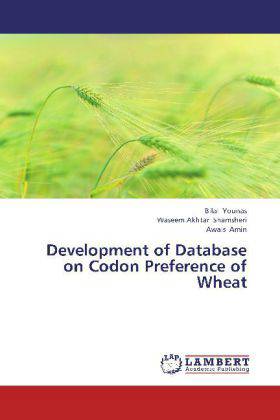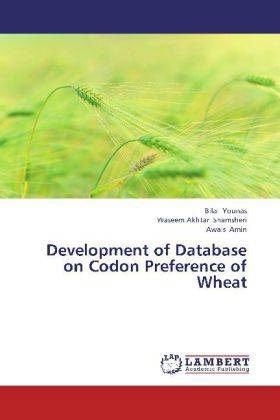
Bedankt voor het vertrouwen het afgelopen jaar! Om jou te bedanken bieden we GRATIS verzending (in België) aan op alles gedurende de hele maand januari.
- Afhalen na 1 uur in een winkel met voorraad
- In januari gratis thuislevering in België
- Ruim aanbod met 7 miljoen producten
Bedankt voor het vertrouwen het afgelopen jaar! Om jou te bedanken bieden we GRATIS verzending (in België) aan op alles gedurende de hele maand januari.
- Afhalen na 1 uur in een winkel met voorraad
- In januari gratis thuislevering in België
- Ruim aanbod met 7 miljoen producten
Zoeken
Development of Database on Codon Preference of Wheat
Bilal Younas, Waseem Akhtar Shamsheri, Awais Amin
Paperback | Engels
€ 65,45
+ 130 punten
Omschrijving
Wheat (Triticum Aestivum) is a grass, originally from the Fertile Crescent region of the Near East, but now cultivated worldwide. In 2007 world production of wheat was 607 million tons making it most produced cereal after maize (784 million tons) and rice (651 million tons).To improve the yield of wheat production different projects are in process. We have developed database on codon preference of selected wheat proteins. Most preferably Codon Preference and Codon biasness refers to same phenomena describing about the usage of synonymous codons. Wheat has a large hexaploid genome that has been sequenced. We have particularly taken only those genes whose nucleotide and amino acid sequence is known in databases. The fasta format Sequences of heat shock proteins and protein kinase were taken from UniProt and codon preferences were find. Then different tools are used to make the tables and Pi charts of codon preference of wheat.
Specificaties
Betrokkenen
- Auteur(s):
- Uitgeverij:
Inhoud
- Aantal bladzijden:
- 104
- Taal:
- Engels
Eigenschappen
- Productcode (EAN):
- 9783659335068
- Verschijningsdatum:
- 29/01/2013
- Uitvoering:
- Paperback
- Afmetingen:
- 150 mm x 220 mm
- Gewicht:
- 163 g

Alleen bij Standaard Boekhandel
+ 130 punten op je klantenkaart van Standaard Boekhandel
Beoordelingen
We publiceren alleen reviews die voldoen aan de voorwaarden voor reviews. Bekijk onze voorwaarden voor reviews.









